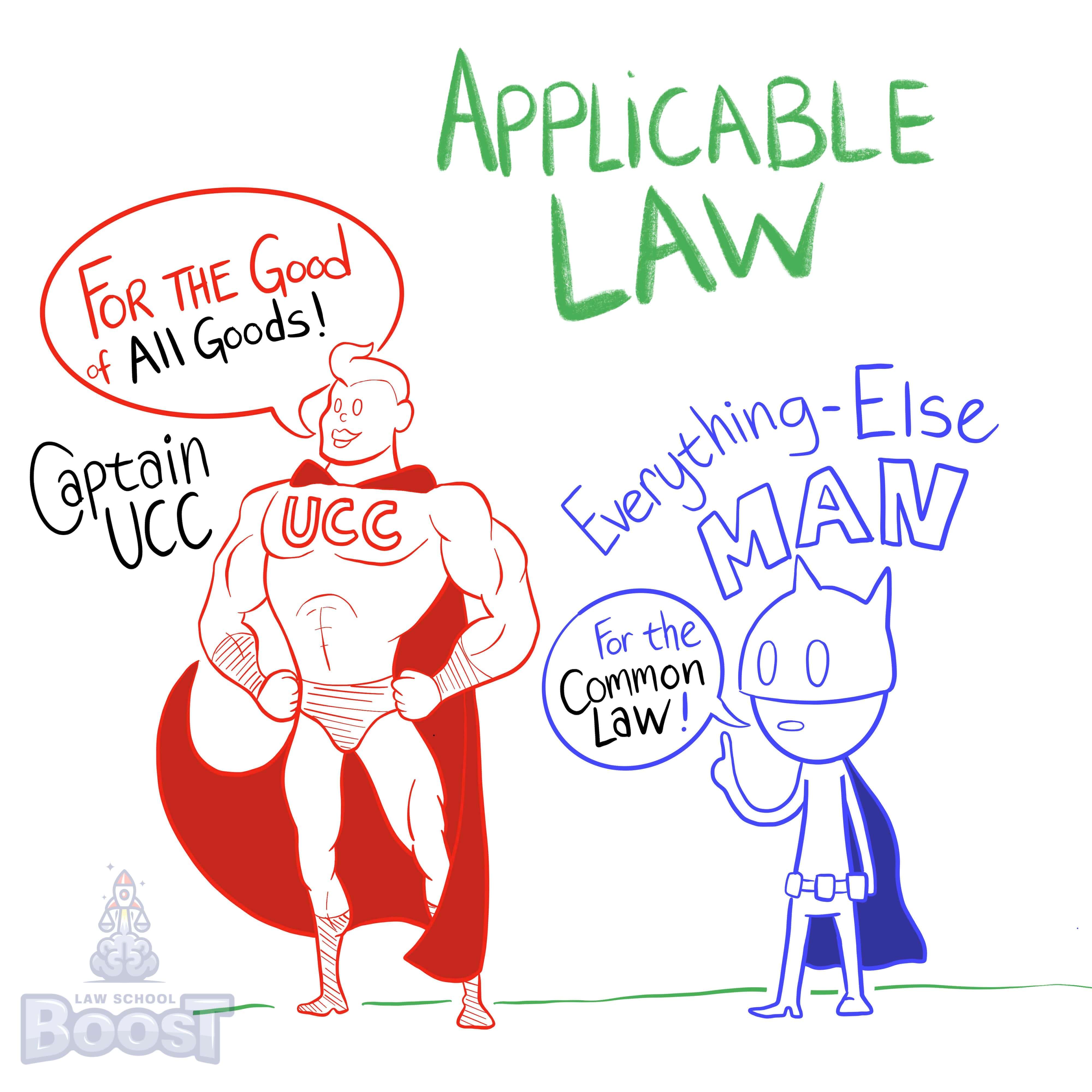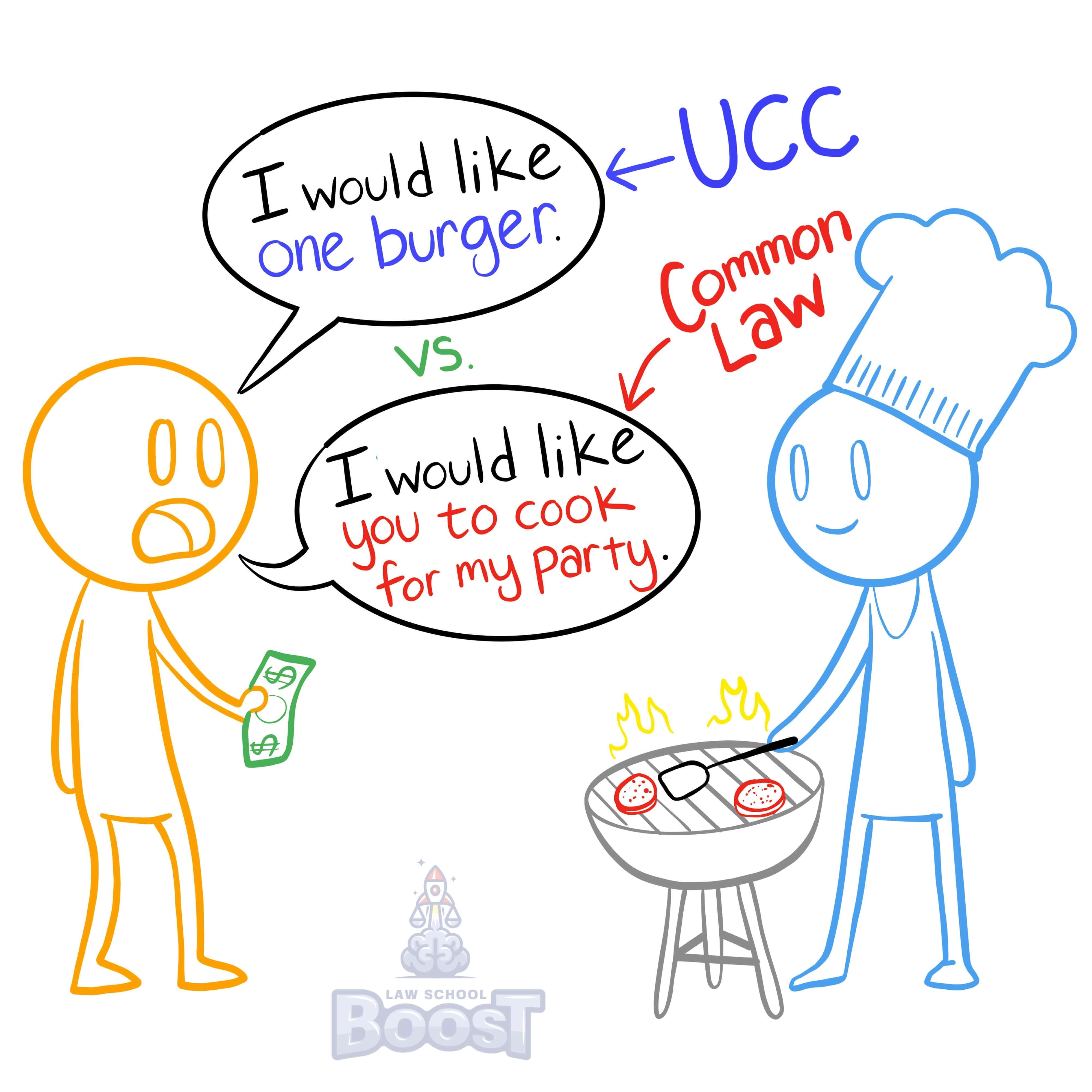🤔
Contracts • Applicable Law
K#007
Legal Definition
When a contract involves a combination of goods and services, courts will look for the main purpose of the contract to determine which law governs, except when a contract divides payment, then the UCC will apply to the sale of goods portion, and the common law will apply to the rest.
Plain English Explanation
It's common for contracts to involve a mixture of goods and services, which means you will often have to argue on an exam why you are applying common law vs UCC law (so be prepared to argue both sides). Generally speaking, unless the contract specifically separates goods from services, then a court will apply whichever laws are most applicable to the purpose of the contract as a whole.
Hypothetical
Hypo 1: Sam buys a car online. For an additional payment, he can have the car driven to his house and dropped off. Sam pays this additional fee. Result: Here you have a good (the car) and a service (the personal delivery of the car). UCC would apply to the purchase of a car, while common law would apply to the service of delivering the car. If the contract doesn't make it clear how the pricing is divided between the two parts, then a court would likely find that UCC law governs since the predominant purpose of the contract was to purchase a car (not to have a car delivered). However, here, because the delivery is a separate upcharge, it could be argued that it divides the payment, allowing UCC to be applied to the car, and common law to be applied to the service.
Visual Aids





